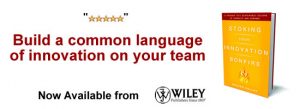Where David Meets Goliath

By Federica D’Armento and Francesco Pagano
This is a tale of two cities. Or, maybe just one: anti-fragile and people-centered.
Here is an independent company based in Geneva (Switzerland), which is an award-winning watch manufacturer. Every masterpiece comes from the creative hand of the founder and the dedication of 25 people. No middle management, just four directors (founder included) and 22 staff. In 2018, they produced only 218 luxury timepieces (number was even lower in 2019). Revenues are around CHF 17 Mill.
And then, there is another company, in the Silicon Valley, which is a global tech giant. Software, cloud computing and online advertising are run by over 120,000 people worldwide, spread across all kinds of hierarchical levels. They had an impressive 2019, with revenues of $ 162 Bill, up 18% year-on-year.
What do MB&F (Maximilian Büsser & Friends) and Google have in common? I would say: true leaders, who built anti-fragile companies and value their people.
#1. Antifragile: what doesn’t break you, makes you stronger
The concept of “anti-fragile†comes from Nassim Nicholas Taleb. He states that anti-fragile systems love randomness and uncertainty, and get stronger with stress and volatility.
Most organizations struggle with disorder, stressors and chaos. Yet, we are in a world where disruption and uncertainty are the new norm. Organizations that navigate through randomness will dominate, and organizations that are hurt by it will fade away.
Despite a few global crises, several multi-million dollar fines from EU authorities, ongoing antitrust investigations, and solemn flops (did you say Google Glasses? Anyone Google+?), Google keeps their double digit growth 22 years after its birth. It looks like a non-stop ride, which comes from great products, an unfairly dominant position in search – some may argue, a bit of luck, but also a unique ability to get better and better, after every storm. I was there for five years, and I remember a place where reorgs happened almost every quarter, where tough decisions were made and consequences of mistakes confronted; and still, you knew leaders were focused on the vision, more than the stock price.
#2. People Have The Power
When it comes to people, I’ll share Maximilian Büsser’s point of view, which I find simply visionary. He admits to have only two talents: to think differently from most, and have an ability to gather great people to work with him. He calls them ‘Friends’ and always recognizes their contribution, starting from the way he named his own company. When a journalist asked why he went for that name, he said: “I wanted to put back the human being into the equation. Our world is filled today with technocrats, not people who love watches. They market their products through celebrities, when the real celebrities are the watchmakers, engineers and artisans who created it. So we were trying to give them back the recognition they deservedâ€.
#3. Leaders, and the unbearable weakness of big egos
Look up. If you really want to understand MB&F or Google, you have to start at the top.Â
If you google ‘my boss is…’, the algorithm will serve you ‘toxic’, ‘micromanager’, ‘control freak’, plus many other not so nice things. This can make you feel lucky, because your boss is ‘just’ incompetent. This is actually ‘the’ problem, with catastrophic effects on teams: lack of trust and engagement; loss of productivity; high burnout levels.Â
When I think of the managers I’ve met, I can highlight three common leadership misconceptions.
– Confident, not competent. We tend to associate confidence with great leadership. But, when it comes to talent, confidence (how good people think they are) and competence (how good they actually are) rarely overlap
– Entertaining. Divas are fascinating. However, there is a big difference between a showman and an effective leader. The best leaders are humble, to the point of passing for boring. Think of Sundar Pichai, Google’s CEO, who is the incarnation of understatement. He focuses on results and building the organization, and not on being in the spotlight. This is what’s needed to secure longevity for a company
– Narcissistic. This is when leadership becomes entitlement, lack of empathy, and blindness to own limitations. Effective leadership means service and caring
Size doesn’t matter. MB&F and Google have the same leadership approach at the top. This is their secret sauce.Â
Rome wasn’t built in a day, yet they started at some point
Great things take time. So, start shaping them, and endure!Â
Let’s use thoughtful strategy and commitment, and let’s make concrete steps ahead. It’s time to forge true leaders, who will create great teams.Â
This is an appeal to companies: work on short-term term stability to make long-term viability. Memo: rules are fragile, principles are resilient, virtue is anti-fragile. And, this is an appeal to all of you: in a world full of stand-up comedians, be the one who concentrates on substance, cares about people, and is never afraid of vulnerability.Â
Maximilian Büsser says he has no idea of where his company is going. It’s not lack of a plan. It’s faith in his ‘friends’ and in the shared mission to delight the world, one timepiece at a time.Â
![]()
ABOUT US: We believe in either disrupting or being disrupted, and we chose to disrupt. At the Disruptor League, we want to know you, surprise you and make it easy for you to be a disruptor, too. It’s not all talk; we are changing the world. Join us to see how. We will teach you to use your superpowers and unite with us to change the world. The Disruptor League offers a unique environment to develop, to practice, and to embed design and innovation into your life. You will connect with others who want to make a difference. Relationships will grow, and problems will be solved.
NEVER MISS ANOTHER NEWSLETTER!
LATEST BLOGS
Starbucks and Big Tobacco
Back in the 1950’s smoking was glamorous, and just about everybody who was anybody smoked cigarettes. Then came the discovery, to the shock of millions, that sucking smoke into your lungs might not be good for you. Then came another revelation that one of the substances in tobacco, nicotine, which was used as a poison by the Egyptians during the times of the Great Pyramids, is addictive. People then began a mass exodus from the consumption of nicotine via inhaled smoke.
Read MoreWal-Mart Goes Green – What about your company?
With the price of gas above $3.00, some companies (and hopefully all) are beginning to look at the fuel efficiency of their fleets. Wal-Mart is the most public example of this with its trucking fleet. Its efforts include:
Read More


